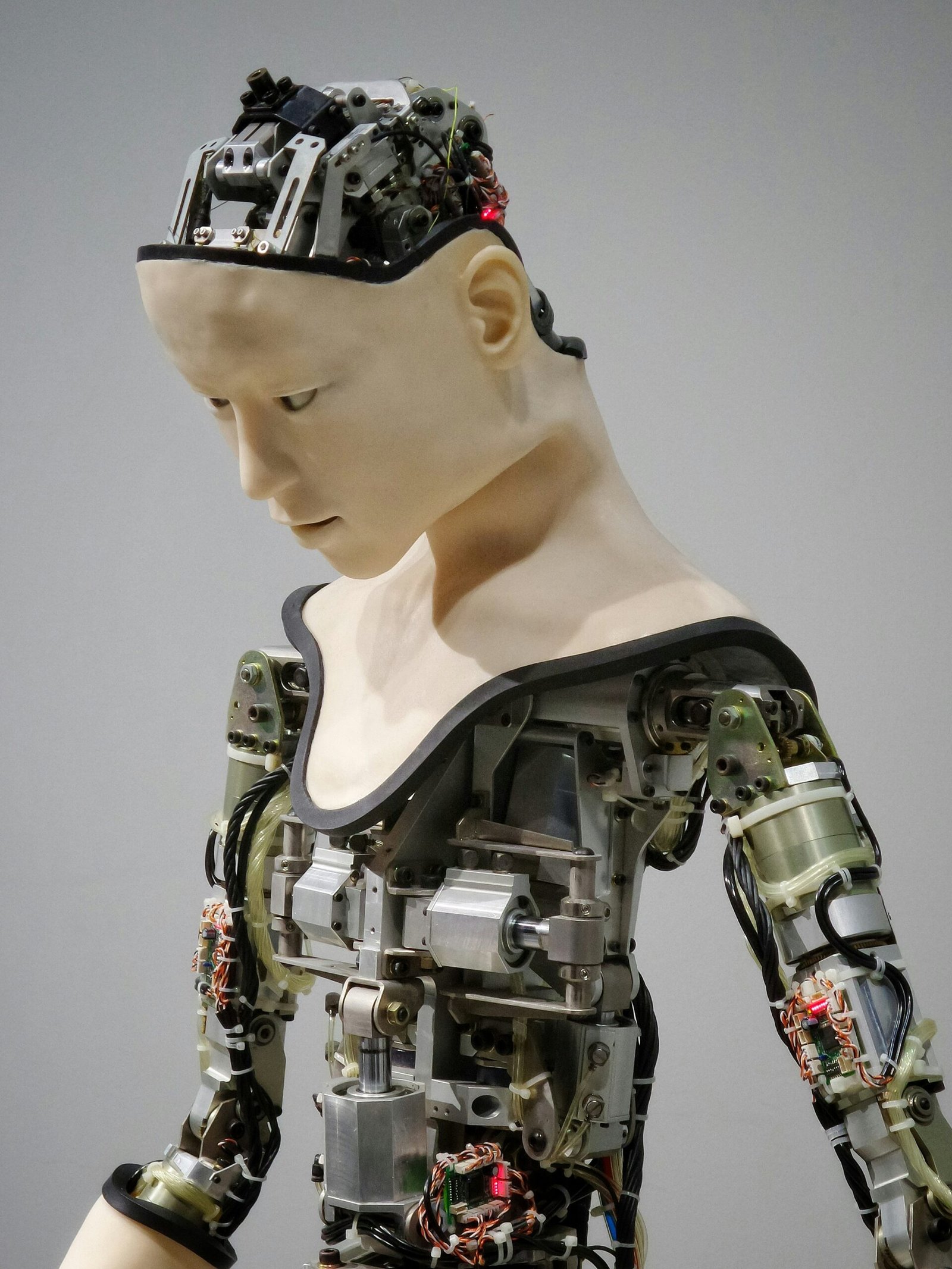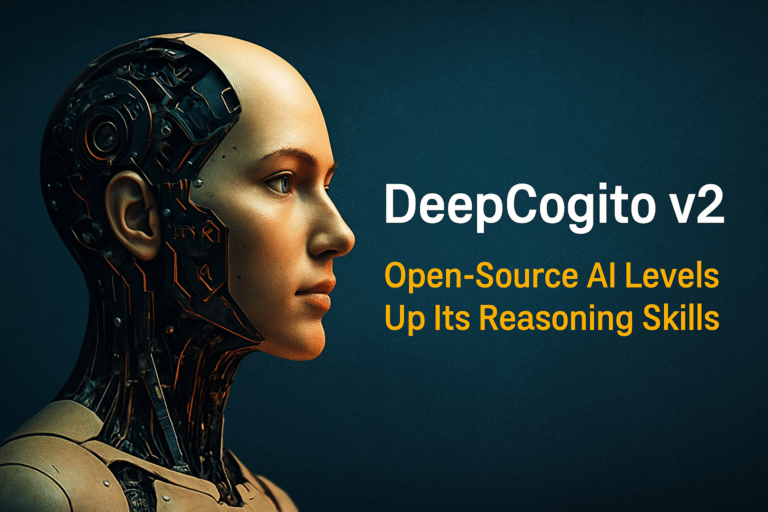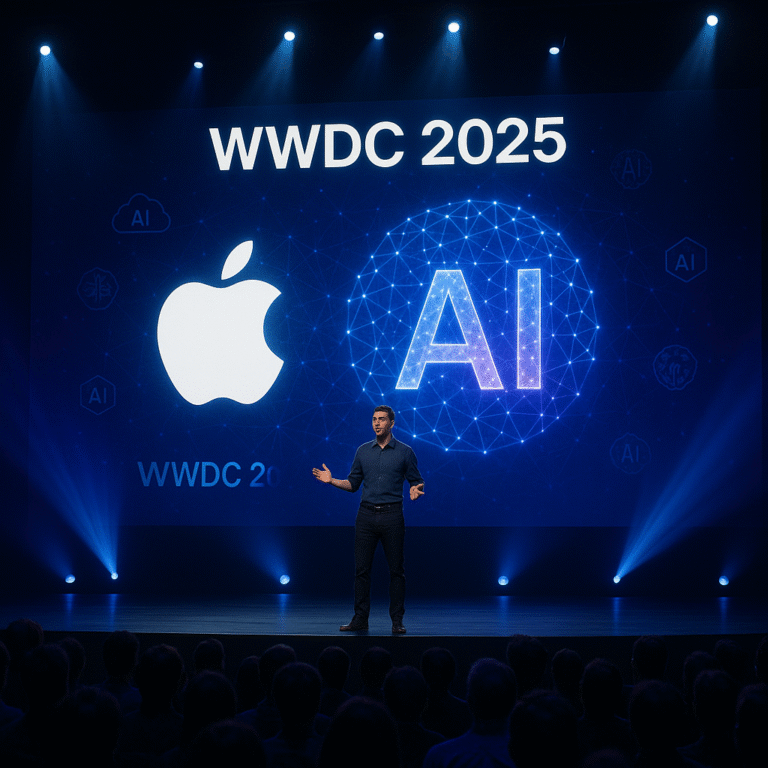
Photo by <a href="https://unsplash.com/@possessedphotography" rel="nofollow">Possessed Photography</a> on <a href="https://unsplash.com/?utm_source=hostinger&utm_medium=referral" rel="nofollow">Unsplash</a>
Introduction to the AI Breakthrough
On February 18, 2025, the world witnessed a remarkable leap in the realm of artificial intelligence (AI), as several groundbreaking advancements were reported across various sectors. These developments have not only captured the attention of industry professionals but have also sparked significant interest among enthusiasts eager to understand the implications of these innovations. With the rapid progress being made, it is vital for both sectors to stay abreast of the latest news surrounding AI technologies.
One of the noteworthy advancements includes improvements in machine learning algorithms that have enhanced data processing and analysis capabilities. This progress signifies a stark shift in how industries, including technology, healthcare, and finance, can utilize AI to optimize their operations and decision-making processes. For instance, the healthcare sector is beginning to employ AI-driven diagnostics tools that enable faster and more accurate disease detection, revolutionizing patient care and treatment approaches.
Furthermore, the financial sector is experiencing a transformation as AI tools facilitate real-time data analysis and risk management, leading to more informed investment strategies and fraud detection measures. These technological breakthroughs underscore the importance of integrating artificial intelligence in various business functions to remain competitive and efficient in an ever-evolving market.
Overall, keeping an eye on developments in artificial intelligence is becoming paramount. Not only do these advancements present opportunities for innovation, but they also raise important ethical and regulatory considerations that must be addressed. As we delve deeper into the specifics of recent AI breakthroughs, it becomes evident that these innovations are not merely technological improvements but pivotal changes that could redefine sectors, ultimately affecting future methodologies and practices.
Key Developments Announced
On February 18, 2025, a series of significant advancements in artificial intelligence were announced, showcasing the continued evolution of AI technology and its applications across various sectors. One of the most notable developments was the introduction of new algorithms designed for improved machine learning efficiency. These algorithms leverage enhanced neural network structures that enable more rapid data processing and reduced training times. Companies involved in this research, including some of the leading tech giants, have indicated that these advancements can dramatically enhance the capabilities of AI systems in areas such as natural language processing and predictive analytics.
In addition to the algorithmic advancements, innovative applications of AI technology were also highlighted during the announcements. For instance, a collaborative effort between a leading autonomous vehicle manufacturer and a prominent university resulted in a breakthrough related to real-time decision-making for self-driving cars. This partnership aims to integrate AI-driven systems that utilize vast amounts of data from road conditions and traffic patterns to enhance safety and efficiency in transportation—a vital step in scaling up the deployment of autonomous vehicles.
Furthermore, several partnerships between tech companies and research institutions were announced, focused on the ethical use of artificial intelligence. These collaborations are expected to set new standards for the responsible development and implementation of AI. Previous milestones, such as the establishment of safety protocols for AI in healthcare, have laid a foundation for these recent developments, allowing stakeholders to build on past successes while addressing current challenges. Overall, the announcements made on this day represent a significant leap forward, setting the stage for further innovations that could potentially revolutionize multiple industries and improve everyday life.
Expert Opinions and Reactions
The recent advancements in artificial intelligence, reported extensively in the news on February 18, 2025, have sparked significant interest and debate among experts within the field. Dr. Emily Thornton, a leading AI researcher at the Tech Institute, emphasized the groundbreaking nature of these developments, stating, “These breakthroughs will enable AI systems to perform tasks that were previously thought to require human intelligence, potentially revolutionizing various industries.” Her remarks encapsulate a sense of optimism in the research community about the potential for AI to enhance productivity and innovation.
However, not all reactions are uniformly positive. John Harrison, a corporate leader at a multinational technology firm, expressed caution regarding the implications of these advancements on the job market. He noted, “While AI presents substantial opportunities for efficiency gains, it also poses significant risks to employment in certain sectors. We must tread carefully and consider the societal impact these technologies have, especially regarding workforce displacement.” This sentiment reveals concerns around the balance between technological progress and the economic realities facing workers.
In addition to professional apprehensions, the ethical dimensions surrounding artificial intelligence remain a central topic of discussion. Dr. Linda Patel, an ethics scholar, voiced her concerns during a recent forum, asserting, “As AI capabilities expand, it is crucial to establish moral guidelines that govern its use. Unchecked innovation may lead to applications that compromise individual privacy and security.” Her perspective invites further scrutiny of the ethical frameworks necessary to guide future AI development.
Overall, the reactions to the latest artificial intelligence breakthroughs illustrate a complex landscape of excitement and skepticism. As stakeholders navigate this pivotal moment in AI, the discourse surrounding its ramifications will undoubtedly shape the trajectory of its integration into society. Addressing the challenges and opportunities posed by these advancements is essential to ensure a balanced approach in fostering technological growth while safeguarding societal interests.
Future Trends and What to Expect
The field of artificial intelligence (AI) has been witnessing rapid advancements, particularly highlighted by the news of breakthroughs on February 18, 2025. These advancements are likely to shape the future in profound ways. Analysts predict significant growth in AI technologies, leading to increased proliferation in various sectors including healthcare, finance, and transportation. For instance, the integration of AI in predictive analytics could enhance decision-making processes, providing users with robust data-driven insights. This capacity to analyze large datasets will enable more personalized services, an aspect vital for those looking to gain a competitive edge.
Moreover, as AI becomes more sophisticated, we can expect the emergence of new applications that extend beyond traditional boundaries. Areas like natural language processing and computer vision are set to evolve, leading to improved human-machine interaction. Businesses should prepare for this by investing in upskilling their workforce, ensuring that their employees are equipped to work alongside these innovative technologies. The shift from manual processes to automated systems driven by AI will demand adaptability and a willingness to embrace change.
However, with these advancements also come challenges. Ethical considerations surrounding AI, such as bias in algorithmic decision-making, necessitate proactive measures from organizations. The regulatory landscape will likely evolve to address these concerns, leading to an increased need for compliance and governance structures in businesses. Thus, understanding both the potential and the pitfalls of AI is essential for stakeholders across industries.
As we look to the future, it is essential for individuals and companies to stay informed about these trends. Emphasizing a culture of continuous learning and development, along with integrating AI into their strategic planning, will be crucial. By doing so, they can not only prepare for the changes ahead but also position themselves as leaders in the ever-evolving landscape of artificial intelligence.



